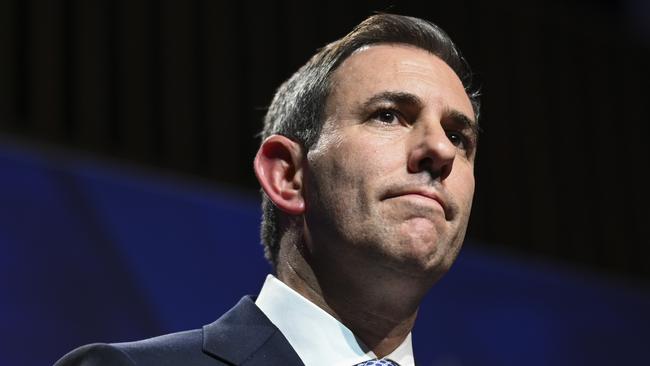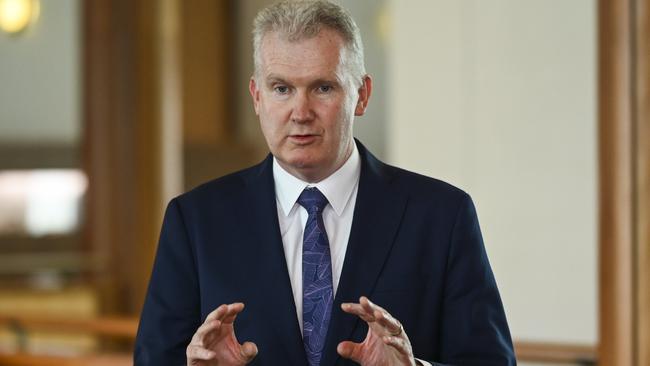All the legal changes coming into effect from July 1, 2024 in Australia
Passport applications, power prices and more are set to change as Aussies ring in the new financial year. See how it will affect you.

National
Don't miss out on the headlines from National. Followed categories will be added to My News.
Coming into the next financial year, July 1 will bring a swath of new laws, including sweeping reforms for Australians. See how they will affect you.
AGE PENSION
More Aussies will be eligible for an age pension,as the government reduces the lower income bracket. It comes as deeming rates remain frozen for another year from July 1, with a lower bracket of 0.25 per cent and a higher bracket of 2.25 per cent.
Deeming, a set of rules used to work out the income created from your financial assets, is considered in the income test to determine pension eligibility.
WELFARE
A rise to the disability support pension will bring a $50 a fortnight rise for those eligible. Single people will receive $1,050 a fortnight, couples will get $1,600. The federal budget also included an increase to Jobseeker payments for those with a “partial capacity to work” by $27.50 a week and a maximum $9.40 extra a week for a single person in Commonwealth Rent Assistance.
MINIMUM WAGE
The Fair Work Commission announced on Monday that it would raise both the minimum and award wages by 3.75 per cent. It brings the national minimum wage to $24.10 hourly and $913.91 in a full-time working week.
The Australian Council of Trade Unions had campaigned for a 5 per cent rise, but the current increase remains marginally above the rate of inflation.
Over 20 per cent of the workforce is affected. It marks a $33 a week rise for full-time minimum wage employees.
TAXES
The centrepiece of the Albanese government’s 2024-25 budget is its income tax reform. Announced in January, the 19 per cent tax rate will lower to 16 per cent, while the 32.5 per cent tax rate will drop to 30 per cent. The 37 per cent tax rate threshold will rise from $120,000 to $135,000, while the 45 per cent tax rate threshold will rise from $180,000 to $190,000.
The Australian Taxation Office will also crack down on undeclared taxable income using data checks. The ATO already uses a data matching program to match financial exchanges linked to taxpayers with their tax returns.
From July 1 it will be expanded to include a number of online providers like investment sites, rideshare and property leasing companies.
By regulating Airbnb and Uber users the ATO hopes to prevent more users from cheating on their tax returns and hiding income. It also allows for more accurate pre-filling in online tax returns. Half a million taxpayers had data adjusted in 2023.
As of now the program surveys visa records, insurance providers, electoral roll information, car registries, international financial transfers, investment property loans and more.

PAID PARENTAL LEAVE
New parental leave standards will also grant the parents of children born or adopted on or after July 1 with additional leave. Eligible families will receive 110 days, with ten days reserved for either parent. This is ten days above the year prior.

TARIFFS
As a part of the 2024-25 federal budget, sweeping tariff reforms were instituted to assist in cost-of-living. In what was described by a treasury spokesperson as the “biggest unilateral tariff reform” in Australian history, a number of “nuisance” imports will be tariff-free. These include small goods like toothbrushes and sanitary products.
FAIR WORK CONTRACTS
Another section of the Closing Loopholes Act will come into effect targeting the role of Delegates’ rights terms in contract negotiations. Unions will also get the chance to apply for exemption certificates regarding the 24 hour notice needed to enter a Fair Work investigation into alleged underpayment.
SMALL BUSINESS
Small business owners who are trustees or trust beneficiaries will see changes to their income tax reporting under trust tax return changes. Trustees will have new reporting requirements, while beneficiaries will be obligated to fill out a trust income schedule that fills the role of the prior statement of distribution form.
PASSPORTS
Aussie travellers will have more options when it comes to fast-tracking passport applications. Those who pay a $100 processing fee can expect a new passport processed within five business days; this comes in addition to the existing 2-day fast-track for $252. New passports usually take six weeks to be issued.
The change to passport processing comes as passport prices rise generally. A 15 per cent price hike across applications will bring the price of an adult 10-year passport from $346 to $397.

WORKING VISAS
The Temporary Graduate visa program will now be stricter in its offerings, coming as the government works to regulate its international student intake.
The Post-Vocational Education Work stream will only be available to under-35s, excluding Hong Kong and British nationals who may apply until age 50. It was previously known as the Graduate Work stream and grants an 18 month stay, which can be extended to five years for Hong Kong and British nationals.
The Post-Higher Education Work stream carries the same age reforms. It was previously known as the Post-Study Work stream. A ‘select degree’ 2 year extension will no longer be available, with stay periods now maxing out at 2 to 3 years depending on the qualification being studied.
This excludes Hong Kong and British nationals who, again, can stay as long as five years. Indian Nationals will also have one year extra in their maximum stay period under the The Post-Higher Education Work as a part of the recent Australia India – Economic Cooperation and Trade Agreement.
POWER PRICES AND INTERNET BILLS
This week it was announced that power prices would fall nationally, marking the first decline in two years. The national policy will have variance in pricing across states and territory.
The Australian Energy Regulator revealed it would reduce the higher limit that energy suppliers could charge customers, known as the default market offers. These price declines will vary by state from 1 to 8.8 per cent.
The National Broadband Network’s new tariff list will also take effect, raising the price of internet services through providers. NBN has attributed a 4.1 per cent average price rise across the board to rising cost of materials, and will pass this rate change down to its 120 associated retailers.
The NBN’s The Home Basic I plan will rise $2.45 to $26.85 per month and Home Basic II by $2.24 to $28.24. The Home Standard plan will grow $2.52 to $52.52 a month and Home Fast will rise by $2.22 to $57.22. Finally the Home Superfast plan will rise by $2.22 to $62.22, and the Home Ultrafast will rise by $2.22 to $72.22.

QUEENSLAND
Turning to state laws, Queensland will reform its public smoking requirements. Outdoor smoking area reforms will limit the exposure of under-18s to second-hand smoke. Children cannot stay with a parent in a smoking area for an extended period. Workplaces must attempt to limit the exposure of under-18 staff to second-hand smoke. Venues are also obligated to install Smoke-free buffers between areas.
As a cost-of-living relief, Queensland households will also receive a one-off $1000 rebate on their electricity bill. This is in addition to the national $300 energy bill rebate.
VICTORIA
In Victoria, stamp duty is being gradually phased out in favour of annual property tax. For property sales after July 1, a single stamp duty payment will be transacted. Ten years on from that an annual commercial and industrial property tax will be charged, valued at 1 per cent of unimproved land value.
The state will also have its annual 1.05 per cent road toll rate rise.
NSW
NSW road cameras will soon detect seat belt wearing, with fines enforced from July 1. The technology has been on trial since a May NSW parliament vote and uses the existing phone detection cameras along the state’s roads.
Unlike prior changes to road surveillance, the Minns government has warned there will be no warning period before fines and demerits are enforced. State Roads Minister John Graham said the rate of improper seatbelt safety was “frankly disturbing”.
To fund the NSW’s boating safety programs and services, maritime fees will see a hike. This applies across vessel registration, knowledge test fees, and licence fees. NSW Fair Trading will also institute new real estate sale reforms regarding staff training and supervision.
The rise to coal royalties, announced in September, will also take effect. It will raise the royalties by 2.6 per cent and is slated to raise average power bills by $5.80 per household.
WESTERN AUSTRALIA
Shifts to worker compensation laws will come into effect in WA that aim to provide more forms of workers, such as subcontractors, with compensation eligibility. The original bill was contentious when passed through the state government, but aims to modernise the state’s workers rights and enshrine new entitlements like entitlements for psychological damage.
ACT
In the ACT, motorists will enjoy new incentives to purchase hybrids and EVs. Those who own zero-emission vehicles, plug-in hybrid vehicles, hybrid electric vehicles or low-emission petrol and diesel vehicles can apply for two years of free registration.
ENGINEERED STONE BANS
The majority of Australian states and territories will institute an engineered stone ban. The material ban will work to reduce silica exposure among trades workers, who have been rallying in recent years over the rising rates of silicosis in Australia.
Queensland, NSW, ACT, Victoria, South Australia, Tasmania, Western Australia have all made the change. No ban has been announced in the Northern Territory.
Originally published as All the legal changes coming into effect from July 1, 2024 in Australia





